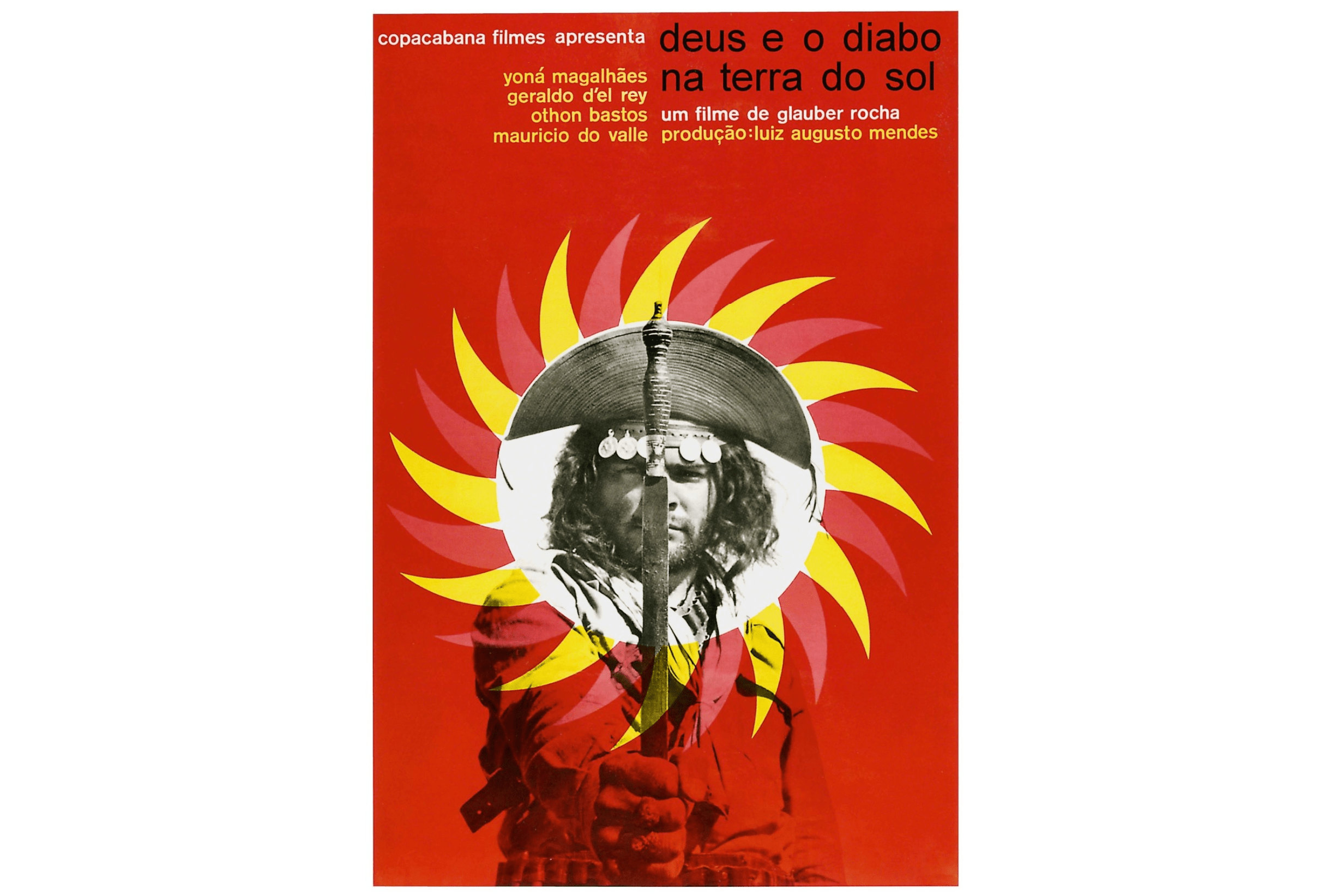With a run of spine numbers that’s now reached 1225, the Criterion Collection continues to curate a consistently impressive series of home video releases as their reach extends ever further into the vast and rich treasures to be found in international cinema beyond the confines of the European and eastern Asian scenes that initially established their reputation as purveyors of “essential art house” films. Their newest release Black God, White Devil takes viewers on a journey deep into the Brazilian interior, far beyond the sun-drenched beaches and swinging bossa nova sounds made famous in Black Orpheus (Spine 48, originally released on DVD in 1999 and on Laserdisc way back in 1987), the only other film from that nation they’ve published as a standalone release in all these years. And that’s really more of a French/Italian film that was shot in Brazil, to be honest. (Limite and Pixote, each outstanding classics in their own right, are both part of their excellent World Cinema Project series of box sets issued in 2017 and 2020 respectively.)
Those two latter titles each owe a big debt to the dynamic work and career of Glauber Rocha, who directed Black God, White Devil while he was still in his early 20s. It wasn’t Rocha’s debut feature, but it launched his career to an international scale and is now regarded as the film that established Brazil as a powerful contributor to the larger world cinema culture. As such, it’s hard to not see this release by Criterion as somewhat overdue in terms of broadening exposure to Glauber Rocha’s distinctive voice. But then again, it’s wonderful that they waited until work on a beautiful 4K UHD transfer was complete to give the film such a premium showcase.
A most boisterous and passionate creative presence, Rocha showed no reluctance in putting himself out there as a larger-than-life personality, in effect making himself as big of an attraction, it seems, as any of the films or other artistic products he presented to his audience over the course of an all-too-brief life that appears to have been packed full of drama and spectacle. And that explosive, confrontational approach to making a strong impression on his audience applies just as much to this film, his second feature, crafted by a very young man who was certainly not lacking in either confidence or provocative ideas. It’s important to emphasize at the outset that this film is indeed based on historic events and personalities, because some of the things that happen on screen, and the exaggerated passions that erupt from its characters, can give the impression of originating from uninhibited fever dreams theatrically brought to life.
By way of review, I created a few video clips to share my impressions of this unforgettable film and the splendid package that Criterion surrounded it with in a generous two-disc Blu-ray edition. The first clip is an immediate reaction recorded just a few minutes after my initial viewing of the film, posted to my TikTok account and shared here.
@dee.ell.bee immediate first reaction after watching #BlackGodWhiteDevil (1964) coming soon from #criterioncollection #braziliancinema #cinemanovo #glauberrocha ♬ Antônio das mortes – Sérgio Ricardo
Several days later, I watched one of the feature-length supplements included on Disc 2, Glauber the Movie, Labyrinth of Brazil. Once again, it’s a TikTok clip embedded for your viewing convenience.
@dee.ell.bee 10 minutes review with excerpts from #GlauberRocha documentary, supplement on the new #BlackGodWhiteDevil Blu-ray released by #criterioncollection ♬ original sound – David Blakeslee
Finally, here’s a more extensive review, including the film’s trailer and also a brief excerpt from Cinema Novo, the other feature-length documentary included in this release that make Black God, White Devil
CONTACT ME:
- David Blakeslee [ TikTok / Website / Facebook / Letterboxd ]



